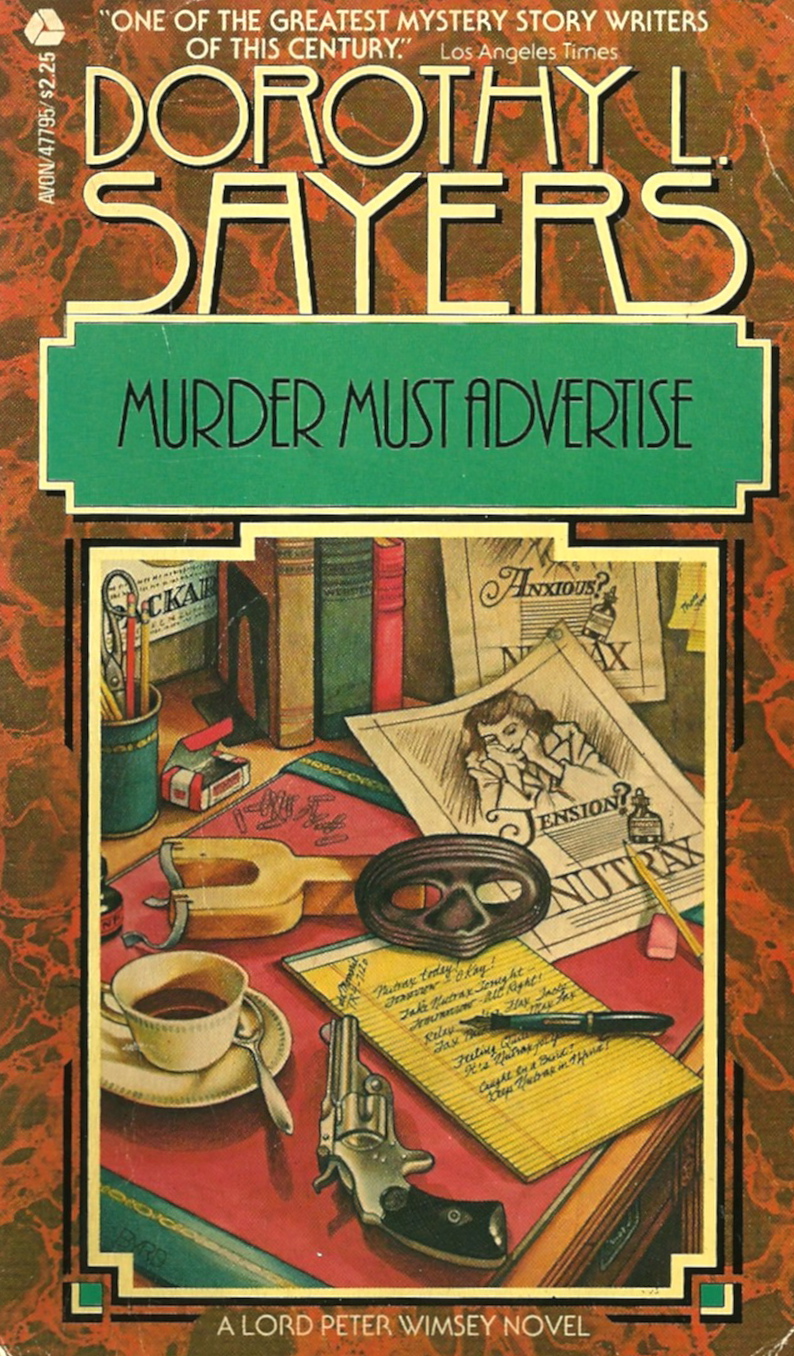Unlike the majority of clients who, though all tiresome in their degree, exercised their tiresomeness by post from a reasonable distance and at reasonable intervals, Messrs Toule & Jollop descended upon Pym’s every Tuesday for a weekly conference. While there, they reviewed the advertising for the coming week, rescinding any decisions taken at the previous week’s conference, springing new schemes unexpectedly upon Mr Pym and Mr Armstrong, keeping those two important men shut up in the Conference Room for hours on end, to the interruption of office-business, and generally making nuisances of themselves.Ah, plus ça change ... First published in 1933, this novel depicts middle-class life in London -- work and play -- in familiar terms. Though Sayers' characters (most of them employed at an advertising agency, as was Sayers for seven years) live in a very different time, their concerns are eminently relatable. Work-life balance, the risks of falling into bad company, where to eat at lunchtime, the paradox of the poor spending money they can't afford on 'luxury' items ... Sayers' observations on the advertising industry are acute, witty and cynical.
The plot, in brief: an advertising executive suffers a fatal fall in the office, leaving an unfinished letter detailing his suspicions of wrongdoing in the firm. A new copywriter appears, one 'Death Bredon', and proceeds to ask a great many probing questions while projecting an aura of harmless frivolity. Why yes, it is Lord Peter Wimsey; and yes, that fatal fall was not the accident it appeared to be.
Reread, for the first time in about 20 years: I remembered how secret messages were passed in advertisements, but didn't recall much of the rest of the plot. This time round, though, I was reminded strongly of Francis Crawford of Lymond circa Queen's Play: perhaps it was the Harlequin costume, the frenetic and somewhat decadent nightlife, the sense that he is constantly in disguise (and that we're introduced to his disguise before his identity is revealed). And, like Lymond, Wimsey ends up giving himself away due to his inability to do a thing badly.
Also, though this novel does not feature Harriet, it does have some of the most delightful interactions between Parker and Wimsey:
‘Your narrative style,’ said Parker, ‘though racy, is a little elliptical. Could you not begin at the beginning and go on until you come to the end, and then, if you are able to, stop?’

No comments:
Post a Comment